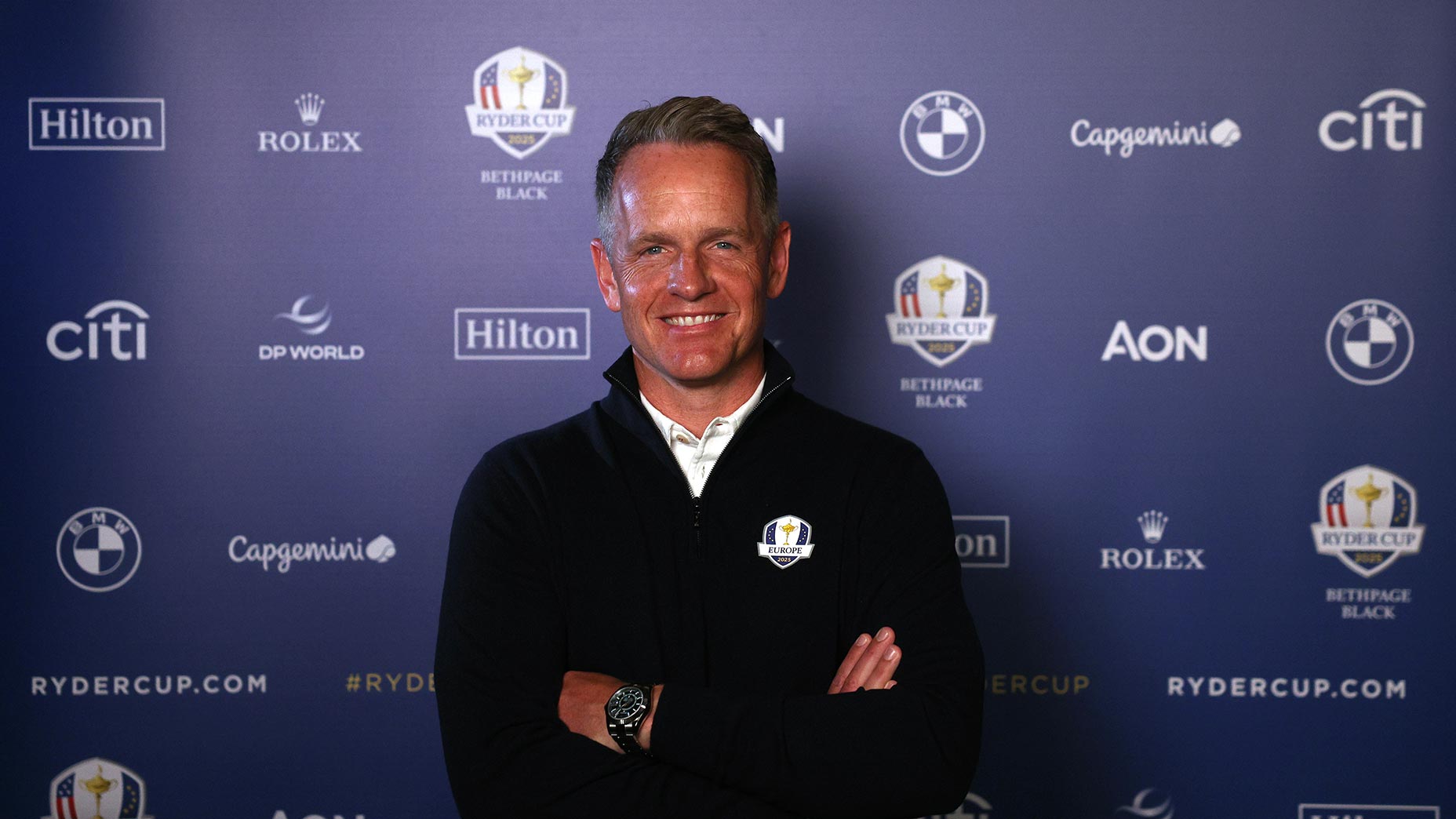Two years ago, Luke Donald entered the Ryder Cup captaincy on a wave of disappointment.
Henrik Stenson, the European side’s chosen leader, had bailed on the team on the eve of the tournament year, reneging on his assurances that he would not go to LIV Golf and joining the upstart league for a considerable upfront payment. Donald, a former World No. 1 with a sterling Ryder Cup history, had been called in off the bench to save a team on the brink of disaster.
As it turned out, Stenson was just the latest member of a wave of departures to the new league, a talent drain that would leave the Euros without many of the players who had defined the previous 20 years of Ryder Cup history. Gone were the likes of Garcia, Poulter, and Westwood — leaving the Europeans to recover from a whooping at Whistling Straits with a talent vacuum wider than that gargantuan first fairway. At the time, conventional wisdom said the Euros were screwed. Donald was being led to slaughter in Rome, ushering in a new era of American dominance and hastening a European rebuild.
Then the Ryder Cup arrived at Marco Simone and, well, you know the rest. The Europeans didn’t just win on home soil, they utterly dominated, dismantling a lackluster American effort with a flurry of skill and emotion. In the captain’s chair, Donald pulled every right lever, thoroughly outclassing an American side led by Zach Johnson en route to a Cup-relinquishing effort.
In the aftermath of the victory, some wondered aloud if Donald could be invited back for a second term as team captain. It would be an unconventional choice, to be sure — there have been only six multiple-time Ryder Cup captains ever, and only half of that lot had ever captained in consecutive Cups — but there was some deeper logic behind it. The Euros were at a sudden dearth of leadership, and Donald’s successful performance had not only illustrated his capabilities as a leader, but also his strategic strengths as a captain. It wasn’t clear if anyone had the stuff to lead the Americans into an assuredly hellish environment at Bethpage Black in 2025, but if someone deserved a shot, it was Donald.
Evidently, the European Ryder Cup committee agreed. On Wednesday morning, the Euros announced that Donald would continue on in his role as Ryder Cup captain for Bethpage 2025, allowing the 45-year-old pro the opportunity to defend his title on the road.
The day marked a key moment for the Euros, who suddenly find themselves with a surge of team play momentum after the three-headed monster of Rory McIlroy, Jon Rahm and Viktor Hovland left the Americans searching for answers. The gang will be back together again in Bethpage, and they’ll be doing so with the same leadership in place.
It also marked a key moment for Donald, who will become the first Ryder Cup captain since Bernard Gallacher in 1995 to lead consecutive Cups. The decision was universally celebrated among European golf fans, who were thrilled with Donald’s job performance in Rome, but it was not made without risk.
The truth is that there’s a lot more than prior history that goes into being a successful Ryder Cup captain. Today’s leaders are part-party planner, part-CEO, part-GM and part-coach — a job that is equal parts exhausting and exhaustive. In theory, prior experience helps — that’s why so many assistant captains have previous Cup experience — but previous examples don’t point to as much. While Donald becomes the fourth consecutive captain in Cup history, only Tony Jacklin has captained a Ryder Cup team to consecutive victories (in ’85 and ’87). The remaining two consecutive captains (Gallacher and John Jacobs) each led consecutive losing efforts for the Euro side in the 80s and 90s.
In some ways, that’s the irony of Donald’s re-hiring. While many of the previous second-time captains in Ryder Cup history have represented an effort at a “safe choice,” Donald represents a swing for the fences — one that comes at a time in which the American side finds itself unusually vulnerable. No road team has won a Ryder Cup since the “Miracle at Medinah” in 2012, and only two road teams (both Euros) have won since the turn of the century.
European Ryder Cup leadership seems to recognize there’s a window of opportunity presented by the infusion of young talent on the Euro side — one that could provide the Euros with a legitimate chance to contend away from home soil. The message in hiring Donald? They’re not going to stand in their own way of doing so.
It helps that Donald has a head start. To date, the Americans have not announced a captain for ’25, and have generally put the Cup in the backseat while the team licks its wounds from Rome. And while widespread speculation points to Tiger Woods being named as the captain for the Americans, Woods all-but-admitted the Cup remains on the backburner while he and a host of other pros iron out the future of the PGA Tour.
“There’s too much at stake with our Tour to think about a Ryder Cup right now,” Woods said from his press conference at the Hero World Challenge on Wednesday. “We have to get this done and we have to be focused on this right now. The Ryder Cup can take a — the players and everyone involved understands that this is an issue we need to focus on.”
Of course, no one in golf will criticize Woods or anyone else involved for placing a priority on the framework agreement. But while that group continues to keep its attention elsewhere, it seems the Europeans are already hard at work on the gameplan for 2025. And they should be.
This time, there was no doubting the first choice.
